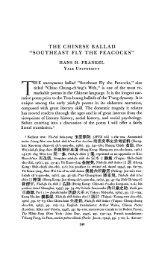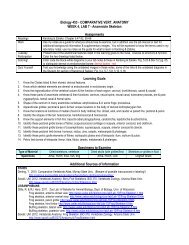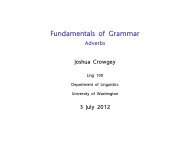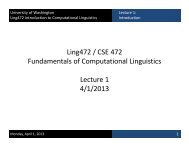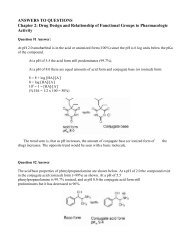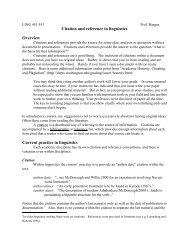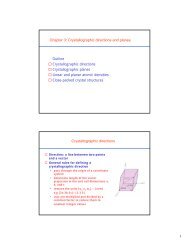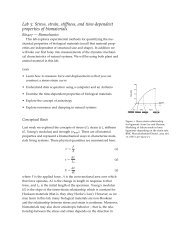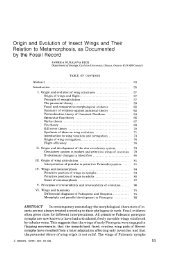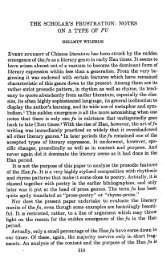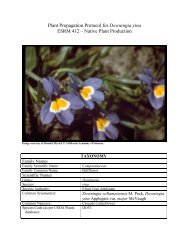Case C-44/01 Pippig Augenoptik Gmbh & Co. KG v Hartlauer ...
Case C-44/01 Pippig Augenoptik Gmbh & Co. KG v Hartlauer ...
Case C-44/01 Pippig Augenoptik Gmbh & Co. KG v Hartlauer ...
You also want an ePaper? Increase the reach of your titles
YUMPU automatically turns print PDFs into web optimized ePapers that Google loves.
Arrêt de la <strong>Co</strong>ur<br />
identical products, which would have no sense in the light of Article 3a(1)(b), (d), (e), (g)<br />
and (h) of Directive 84/450.<br />
28 Moreover, statement of the name of the competitor envisaged by the comparison is not<br />
obligatory; the optional nature of such a designation is apparent both from Article 3a of<br />
Directive 84/450 and the 15th recital in the preamble to Directive 97/55.<br />
29 The Austrian Government maintains that a stricter national criterion for deception should<br />
be accepted as lawful in place of the risk of deception referred to in Article 3a(1)(a) of<br />
Directive 84/450, but not in place of the definition of comparative advertising or the<br />
conditions set out in Article 3a(1)(b) to (h) of that directive. A contrary interpretation would<br />
leave Article 3a(1)(a) of Directive 84/450 devoid of meaning. It is also difficult to explain<br />
why misleading advertising might, at the national level, be treated more strictly outside a<br />
comparison than in the context of a comparison.<br />
30 The Austrian Government argues that, even if comparison of an unbranded product with a<br />
branded one often leads to a situation of deception or discredit, such a comparison should<br />
not automatically be regarded as unlawful.<br />
31 In the <strong>Co</strong>mmission's view, Directive 84/450 contains exhaustive legislation covering all<br />
aspects of a comparison of goods or services for advertising purposes. It therefore leaves<br />
no room for stricter national legislation or case-law as to the lawfulness of such<br />
advertising.<br />
32 In those circumstances, the reference to Article 7(1) appearing in Article 3a(1)(a) of<br />
Directive 84/450 can only mean that comparative advertising, which as such is lawful in<br />
accordance with the provisions of that directive, would however be unlawful if, in an area<br />
other than comparison proper, it were to contain misleading information.<br />
33 The <strong>Co</strong>mmission also notes that there is nothing in Directive 84/450 to prohibit<br />
comparison of branded products with unbranded ones. In the case of spectacles,<br />
however, the fact that they have lenses of a famous brand might be a characteristic<br />
increasing their quality and thus their price, so that the presence or absence of such<br />
lenses in the spectacles being compared for price should be mentioned in order to prevent<br />
the advertising from being misleading.<br />
Findings of the <strong>Co</strong>urt<br />
Page 10 of 18<br />
34 In relation to the first part of the question, concerning the application of Article 7(2) of<br />
Directive 84/450 to all the elements of comparison, the <strong>Co</strong>urt notes that, according to<br />
Article 2(2)(a) of Directive 84/450, comparative advertising means any advertising which<br />
explicitly or by implication identifies a competitor or goods or services offered by a<br />
competitor.<br />
35 As the <strong>Co</strong>urt has already held, that is a broad definition covering all forms of comparative<br />
advertising, so that, in order for there to be comparative advertising, it is sufficient for<br />
there to be a statement referring even by implication to a competitor or to the goods or<br />
services which he offers (<strong>Case</strong> C-112/99 Toshiba Europe [20<strong>01</strong>] ECR I-7945, paragraphs<br />
30 and 31).<br />
http://eur-lex.europa.eu/LexUriServ/LexUriServ.do?uri=CELEX:620<strong>01</strong>J00<strong>44</strong>:EN:HTML<br />
12/21/2008



